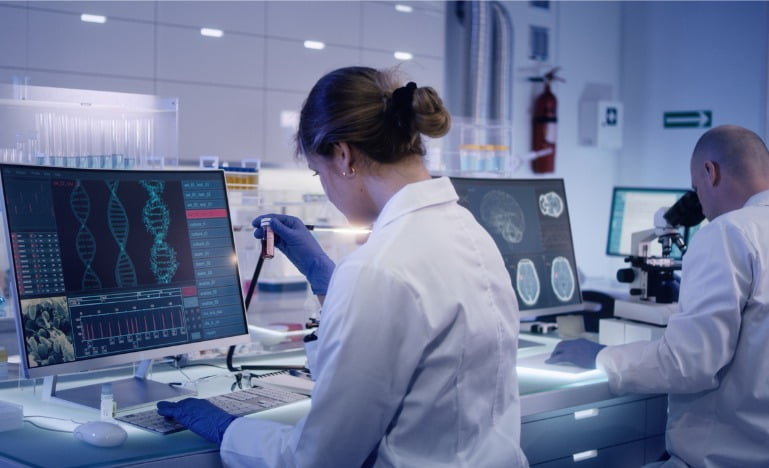The Future of AI in Healthcare: Revolutionizing Patient Care


Introduction
Artificial intelligence (AI) has emerged as a powerful force in healthcare, promising to revolutionize the way patient care is delivered and managed. With its ability to analyze vast amounts of data, make predictions, and automate tasks, AI is poised to enhance diagnostic accuracy, streamline administrative processes, and improve patient outcomes.
As we look to the future, the integration of AI in Healthcare holds tremendous promise, but it also raises important ethical, regulatory, and privacy concerns. In this article, we will explore the potential of AI in healthcare and the challenges it presents, as well as its impact on patient care.
AI in Diagnostics
One of the most exciting applications of AI in healthcare is its role in diagnostics. AI algorithms can analyze medical images, such as X-rays, MRIs, and CT scans, with remarkable precision and speed.


For instance, AI can assist radiologists in detecting abnormalities, such as tumors or fractures, more quickly and accurately than ever before. This can lead to earlier interventions and improved patient outcomes.
In Addition
In addition to imaging, AI can analyze clinical data, including electronic health records (EHRs), to identify patterns and trends that may go unnoticed by human physicians. By combing through vast datasets, AI can help diagnose diseases, predict patient outcomes, and recommend treatment options tailored to an individual’s unique medical history.
Drug discovery and development
AI is also transforming the process of drug discovery and development. Developing new drugs is a lengthy and costly process, but AI can significantly expedite it. Machine learning models can analyze molecular structures, predict potential drug interactions, and even identify new drug candidates.
This not only accelerates the development of new therapies but also offers the possibility of personalized medicine, where treatments are tailored to a patient’s genetic makeup.
Treatment Personalization
Personalized medicine is a key area where AI is making a profound impact. By analyzing genetic and clinical data, AI can help determine the most effective treatment options for individual patients.
This can minimize adverse reactions and improve treatment outcomes. Furthermore, AI can continuously monitor a patient’s condition and adjust treatment plans in real-time, ensuring that therapy remains optimized.
Administrative Efficiency
Beyond clinical applications, AI can streamline administrative tasks in healthcare. Chatbots and virtual assistants can handle appointment scheduling, answer patient queries, and assist with billing and insurance claims.
This not only reduces the administrative burden on healthcare providers but also improves the patient experience by providing quick and efficient service.
Challenges and Concerns
While the potential of AI in healthcare is vast, it is not without its challenges and concerns. Some of the key issues include:
Data Privacy and Security
The use of AI in healthcare relies heavily on sensitive patient data. Protecting this data from breaches and ensuring patient privacy is a significant concern. Striking the right balance between data sharing for research and safeguarding individual privacy is a complex challenge.
Regulatory Hurdles
The healthcare industry is highly regulated, and AI technologies must adhere to strict regulatory standards. Ensuring that AI-driven tools meet these standards while remaining innovative and agile is a significant challenge.
Bias and Fairness
AI algorithms can inherit biases present in the data they are trained on, potentially leading to disparities in healthcare outcomes. Addressing these biases and ensuring fairness in AI-driven healthcare is crucial.
Ethical Dilemmas
As AI becomes more integrated into healthcare decision-making, ethical questions arise. For example, who is responsible when an AI algorithm makes a medical error? How do we ensure transparency and accountability in AI-driven healthcare?


Incredibly Promising
The future of AI in healthcare is incredibly promising. AI has the potential to revolutionize patient care, from diagnostics and drug development to personalized treatment and administrative efficiency.
However, realizing this potential will require addressing significant challenges, including data privacy, regulatory compliance, bias mitigation, and ethical considerations.
Conclusion
As we move forward, it is crucial to strike a balance between harnessing the power of AI to improve patient care and ensuring that AI-driven healthcare remains ethical, transparent, and patient-centric.
With the right approach, AI can indeed usher in a new era of healthcare where patients receive more accurate diagnoses, personalized treatments, and an overall improved healthcare experience.








